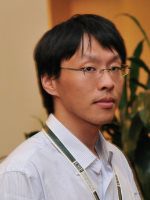Xunchang Fei

Xunchang Fei
University of Michigan, Ph.D.
EREF Scholar 2013
Paradigm for Solid Waste Containment to Active Treatment and Energy Recovery
Project Description (while EREF Scholar):
Approximately 250 million tons of municipal solid waste (MSW) is generated on a yearly basis in the United States. In 2010, 54% of the generated waste was landfilled, while 34% was recycled and 12% was incinerated. Both recycling and incineration have limitations in handling large volumes of waste and are only feasible for certain types of waste. Among the landfilled MSW, 60% consisted of paper, food and yard wastes by wet weight. These organic wastes are in general economically or technically unfeasible for recycling and incineration, and are biodegradable under anaerobic conditions in landfills. Therefore there is major need to develop a targeted and sustainable strategy for handling such types of waste.
MSW biodegradation prior to and after landfilling can be affected by various operations “from bin to grave.” These include source separation, temporary storage, collection and transportation, pretreatment, co-disposal or co-treatment with other waste streams, and biodegradation enhancement in landfills.
The degree of biodegradation of MSW determines its energy generation and recovery potential. However, there is a lack of complete understanding of the overall MSW biodegradation process and the factors influencing it at each step. Current waste management practices are often not optimized and energy recovery is not emphasized. Economic analysis is largely absent due to insufficient knowledge and data. Fei’s research targets impacts to the MSW biodegradation process prior to and after landfilling due to various operations.
Biography:
Xunchang “Fei” Fei was born and grew up in Shanghai, China. He received a Bachelor of Science degree in Environmental Science from Tongji University in China in 2008. His undergraduate study focused on toxicology of several organic pollutants on Zebrafish eggs. He received a MS in Environmental Engineering at the University of Michigan in 2010 and continues his study as a Ph.D. student. He is co-advised by two faculty members in Geotechnical Engineering and Environmental Engineering programs and is actively involved in assisting teaching, outreaching and services of both programs. Fei’s hobbies include badminton, exercise, reading science fiction and watching animations and electronic sports matches.




